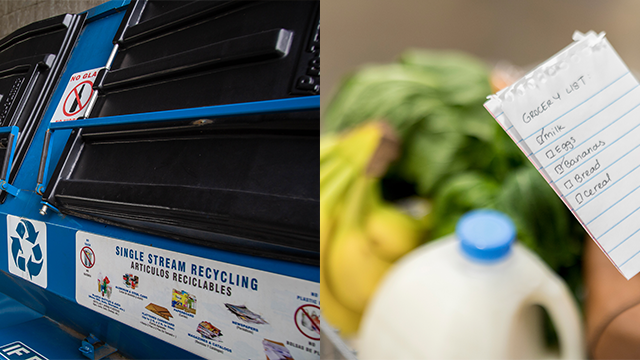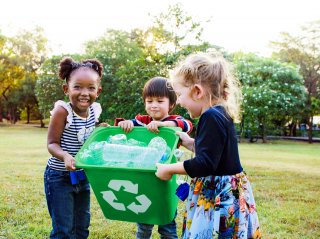The Bipartisan Infrastructure Law: Transforming U.S. Recycling and Waste Management
On this page:
Overview
The Bipartisan Infrastructure Law is a historic investment in the health, equity, and resilience of American communities. With unprecedented funding to support state and local waste management infrastructure and recycling programs, EPA will improve health and safety and help establish and increase recycling programs nationwide.
The United Nations International Resource Panel concluded natural resource extraction and processing make up about half of all global greenhouse gas emissions. Increasing recycling reduces climate, environmental, and social impacts of materials extraction and keeps valuable resources in use, instead of in landfills.
Under the Bipartisan Infrastructure Law, EPA is developing three new waste prevention, reuse, and recycling programs:
- Solid Waste Infrastructure for Recycling Grant Program.
- Recycling Education and Outreach Grant Program.
- Battery Collection Best Practices and Voluntary Battery Labeling Guidelines.
-

EPA Announces Second Round of Funding
EPA announced three funding opportunities totaling $117 million. The goal of these grants is to improve waste management systems and consumer education and outreach on waste prevention and recycling.
-

2023 Recycling Grant Selectees and Recipients
Learn about the selectees and recipients of the recycling grants for states and territories, communities, and tribes, and the recycling education and outreach grants.
Related Information

- How to prepare for grants.
- Model Recycling Program Toolkit.
- Sign up for updates on these Bipartisan Infrastructure Law programs.
- Read through a fact sheet about the Bipartisan Infrastructure Law (available in multiple languages).
- The Bipartisan Infrastructure Law also requires the Agency to update the Comprehensive Procurement Guidelines.
- Learn about other infrastructure investments at EPA.
- Progress Toward Building a Circular Economy for All (pdf)(3.5 MB).
- EPA requested input on:
- EPA also hosted feedback sessions to seek input on needed improvements to solid waste management systems.
